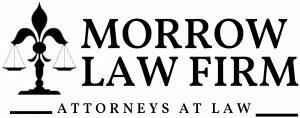
The Legal Implications of Distracted Driving in Louisiana
"Distracted driving remains a leading cause of accidents, and understanding its legal consequences is essential for all drivers," states Morrow. Louisiana's laws are designed to address and mitigate the risks associated with distracted driving, with stringent measures in place to enforce compliance and ensure road safety.
Legal Framework in Louisiana
Louisiana law defines distracted driving broadly, encompassing activities that divert attention from the primary task of driving. These distractions can be visual, manual, or cognitive, with common examples including texting, using a mobile phone, eating, or adjusting in-car technologies. The state has specific statutes targeting these behaviors to enhance road safety.
Texting While Driving: Louisiana has enacted laws that prohibit texting while driving for all drivers. This includes reading, writing, or sending text messages or emails. The ban is strictly enforced, with penalties that include fines and, for repeat offenders, increased monetary sanctions.
Handheld Device Use: For novice drivers, those with learner's permits or intermediate licenses, the use of handheld devices while driving is completely banned. Additionally, all drivers are prohibited from using handheld devices in school zones during posted hours.
Other Distractions: The law also addresses other forms of distractions that can impair driving. Engaging in activities that take a driver's attention away from the road, such as eating, grooming, or interacting with passengers, can also be grounds for legal consequences if they result in dangerous driving behaviors.
Penalties and Consequences
The penalties for distracted driving in Louisiana are designed to deter such behaviors and promote safer driving habits. These penalties can vary based on the nature and severity of the distraction, as well as whether the driver is a repeat offender.
Fines: First-time offenders caught texting while driving can face fines. These fines increase with subsequent violations, reflecting the seriousness with which the state views repeat offenses.
Points on License: Distracted driving violations can also result in points being added to a driver's license. Accumulating too many points can lead to increased insurance premiums and, in severe cases, license suspension.
Civil Liability: Beyond criminal penalties, distracted drivers can face civil liability if their actions result in accidents causing injury or property damage. Victims of such accidents may file personal injury lawsuits seeking compensation for medical expenses, lost wages, pain and suffering, and other damages.
Employer Liability
In cases where distracted driving occurs in the course of employment, employers can also be held liable. If an employee causes an accident while using a mobile device for work-related purposes, the employer may be deemed responsible for the resulting damages. This legal principle, known as vicarious liability, underscores the importance for businesses to enforce strict policies regarding mobile device use while driving.
Employers are encouraged to implement comprehensive distracted driving policies, provide training to employees on safe driving practices, and enforce compliance with these policies. Doing so not only helps protect the public but also minimizes the legal risks faced by the business.
Preventative Measures
To mitigate the risks associated with distracted driving, both individual drivers and employers should adopt proactive measures. Public awareness campaigns, educational programs, and strict enforcement of distracted driving laws play a crucial role in changing behaviors and reducing accidents.
Education and Awareness: Raising awareness about the dangers of distracted driving is essential. Educational initiatives aimed at drivers of all ages can help reinforce the importance of staying focused on the road.
Technology Solutions: Utilizing technology to reduce distractions can also be beneficial. For example, apps that block incoming texts and calls while driving, or vehicle systems that integrate hands-free technologies, can help minimize distractions.
Policy Implementation: Employers should establish and enforce clear policies regarding mobile device use for employees who drive as part of their job. Regular training and strict enforcement of these policies can help prevent accidents and reduce liability.
Conclusion
The legal implications of distracted driving in Louisiana are significant and far-reaching. Understanding the laws, penalties, and potential liabilities associated with distracted driving is crucial for promoting safer driving behaviors and reducing the incidence of accidents. By staying informed and adopting proactive measures, drivers can contribute to a safer road environment for everyone.
Morgan Thomas
Rhino Digital, LLC
+1 504-875-5036
email us here
Visit us on social media:
Facebook
EIN Presswire does not exercise editorial control over third-party content provided, uploaded, published, or distributed by users of EIN Presswire. We are a distributor, not a publisher, of 3rd party content. Such content may contain the views, opinions, statements, offers, and other material of the respective users, suppliers, participants, or authors.



